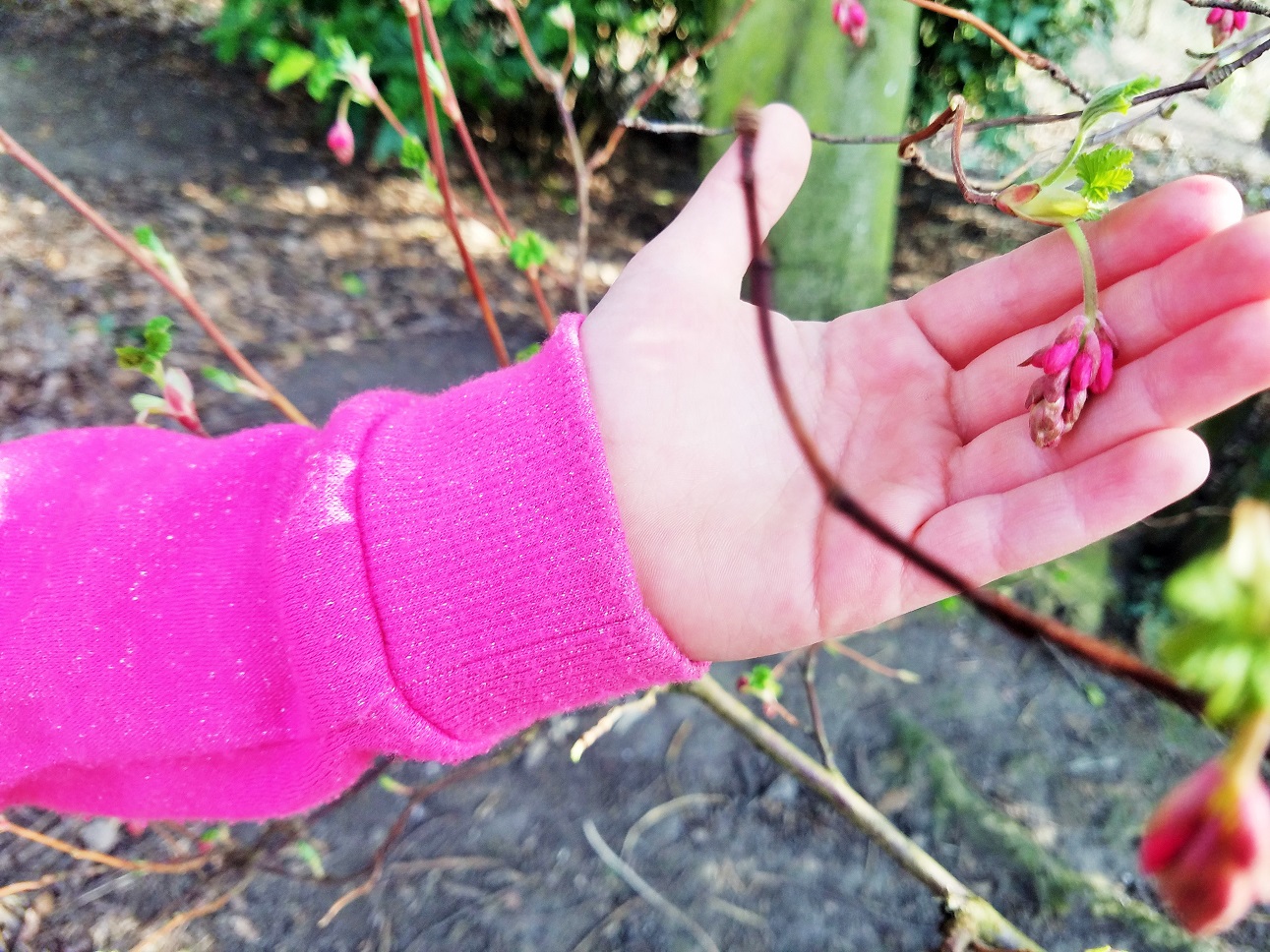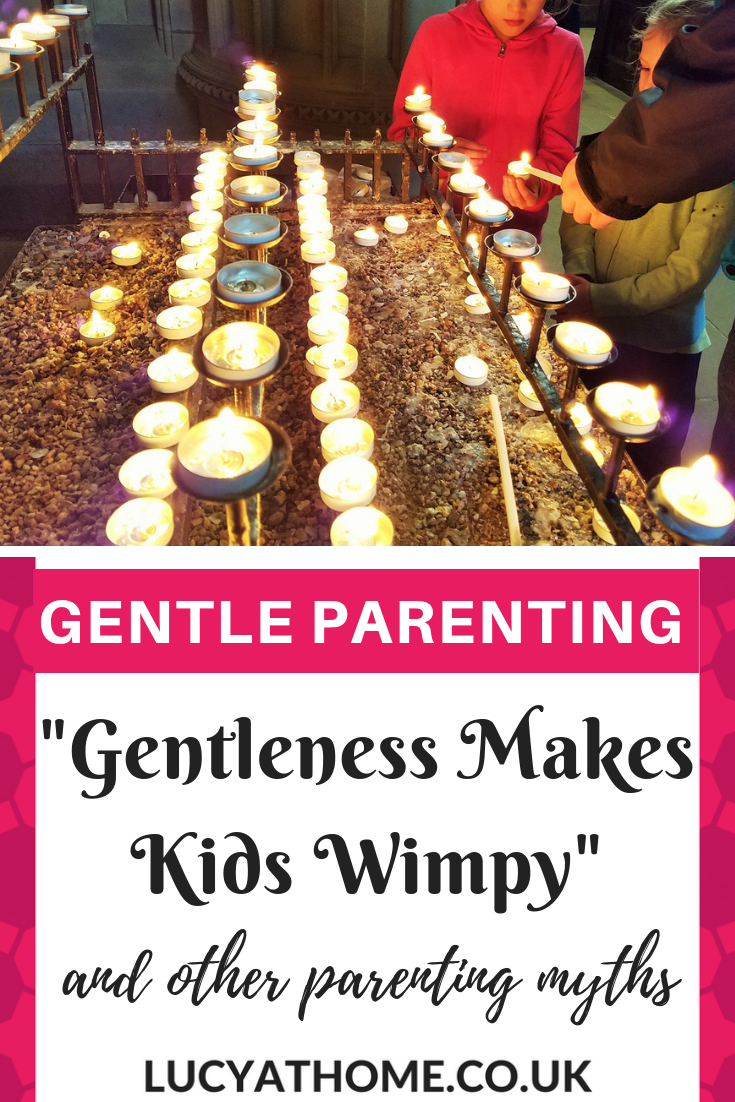
Caring Makes Wimpy Kids (& Other Parenting Myths)
There are a lot of parenting myths out there. The dictionary defines a myth as “a commonly believed but false idea.” And that’s the problem – because these parenting myths are commonly believed, people think they must be true.
Now, I’m a big believer in the wisdom of the generations. I think there’s a lot we can learn from our elders – those who’ve been through parenting already and have come out the other side. But in my 8 years as a mum, there is also a lot of advice that I have found to be a complete load of rubbish.
Some have gradually gone out of fashion (e.g. “Children should be seen but not heard”), but there are plenty of parenting myths that are still making the rounds.
Have a look and see if you’ve come across any of these…

7 parenting myths that are still being shared today
-
The aim of parenting is to produce well-behaved kids
No. The aim of parenting is to produce kind, successful humans who can live a fulfilling life! I would much rather my children be happy and well-adjusted than blindly obedient.
Children can be well-behaved but still hide some deeply destructive thought patterns. The focus needs to shift from outside behaviour to internal motivation – the best thing we can do for our kids is give them the tools to maintain good mental health.
-
Being a stay at home mum will make your child clingy
I had this parenting myth levelled at me a lot because I chose to stay at home with my little ones. They told me my kids would find the transition to school really hard because they had been at home with me for so long.
Actually, children who have a strong bond with their caregiver are more adventurous and outgoing. They feel safe in the knowledge that they are loved and their needs will be taken care of, so they are then free to explore the world.

-
Laughing when a child falls over will teach resilience and stop them being a wimp
I understand the logic behind this parenting myth – sometimes children make more of a fuss about their fall if they know we’re looking. But laughing IS NOT the answer! How would these adults feel if someone laughed at them when they fell over?? It teaches kids that they can’t show when they’re hurting, and they’re on their own when it comes to difficult situations.
Instead, just asking where they’re hurt and giving it a quick rub reassures the child and satisfies their trust in you to “fix” it. If they know they have your attention when they need it, they won’t need to make a fuss to get it – no “wimpy” behaviour in sight!
-
Smacking is a valid form of punishment when done in a controlled, restrained way
I was smacked as a child. My parents weren’t malicious or mean about it – it was just the go-to punishment.
But I will not smack my own children.
I never want my children to be afraid of me. There are so many discipline options now that achieve the same (or BETTER) results in a non-violent, non-intimidating way. Smacking is frightening and hurtful, and it has no place in a loving relationship.

-
Give kids options and they’ll walk all over you
There’s this idea that parenting shouldn’t be a discussion – it should be a dictatorship. We’re told we need to be firm with kids and they should obey what we say because we’re mum and dad.
But dictatorships cause conflict and resentment. Instead, involving kids in their upbringing means they’ll work with you and life lessons are learnt through harmony instead of clashes.
-
A child who tantrums is naughty
I’m sure you’ve heard of the “terrible twos” or the “threenager” stage, because there’s this parenting myth that kids who tantrum are defiant, unruly and bad. But actually, tantrums are what happen when children don’t know how to deal with their feelings – they’re not choosing to be disobedient.
We need to calmly help our children understand how they’re feeling. Sitting quietly close by with open arms, waiting for them to be ready to talk it out will have a much better result in the long term.

-
Parents should hide their sadness and heartache from their children
I worry a lot that if my children see me unhappy, they will be worried. And I know that when I’m really upset, I find it harder to filter what I think and say.
But I have come to understand that my children need to see me when I’m struggling as well as when I’m on form. They need to see that having bad days is normal, and that you don’t need to isolate yourself when you’re not coping.
They will also see the steps I take to improve my mental health, including self-care, forgiveness and reaching out to others.

Have you come across many of these parenting myths? Have you fallen for any yourself? What “advice” did you find to be completely wrong after you became a parent? Join the discussion by emailing me or leaving a comment below!
PIN it for later:


Many thanks Lucy for your kind articles that help so many you probably don’t even know ♡♡♡ I have found such comfort and reassurance from your words many times and it helps me know even though I feel controversial at times – I will stick to my kind parenting guns and work with my little one not against her ♡♡♡♡ thank you for your words xxxxx
Thank you so much for leaving such a lovely comment and I’m so glad you’ve found my writing useful 🙂